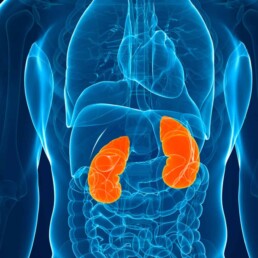We combed through multiple medical journals looking for the latest research on the Integrative approach to kidney health. We know your time is valuable, so we curated and summarized these studies for you. Welcome to the InKidney July Research and News.
Diet therapy along with nutrition education can improve renal function in people with stage 3-4 CKD who do not have diabetes
In this randomized controlled trial published in the British Journal of Nutrition, investigators assessed the role of individualized dietary therapy and counseling on eGFR.
One hundred twenty CKD patients who don’t have diabetes were randomized into an intense nutrition group and a controlled group (routine and standard care) for six months. The intense nutrition group had a significantly lower protein and sodium intake than the control group.
This was associated with a statistically significant improvement in the intense nutrition group’s eGFR, creatinine, and blood pressure control. Depression score was also improved.
The study again highlights the importance of dietary intervention in CKD and the need for coaching and counseling patients for at least six months to make an impact.
Join us to end the kidney disease epidemic and receive the FREE Report “5 Pitfalls to Avoid When Caring for Kidney Patients”
Consuming nuts 1-6 times a week is associated decreased risk of CKD
Researchers in this study found that consuming nuts 1-6 times a week was associated with lower risks of chronic kidney disease (CKD) and all-cause mortality.
The study examined 6,072 adults who participated in the NHANES 2003–2006. Consuming nuts 1-6 times a week was associated with a significant reduction in the prevalence of CKD.
Both patients who did or did not develop CKD had a significant decrease in all-cause mortality.
This study emphasizes the importance of a plant-dominant diet in decreasing the incidence of CKD regardless of the oxalate content in the plant sources. It is well known that plant-based and plant-dominant diets also delay the progression of CKD.
Genetics + environment = lupus nephritis
A recent article in Clinical Kidney Journal summarizes recent reports describing genetics’ role in causing lupus nephritis.
The authors describe how loss-of-function variants of Tumor Necrosis Factor Alpha-Induced Protein 3 (TNFAIP3) and gain of function variants of Toll-like receptor 7 (TLR7) cause lupus and lupus nephritis. Both lead to NF-ĸB activation.
This follows another recent study published in Nature that demonstrated that a gain of function genetic variant in TLR7 causes human lupus.
TLR7 is a sensor of viral RNA.
This highlights the interaction between genetics and environmental triggers in lupus nephritis and other autoimmune kidney disorders.
Join here to receive FREE monthly updates on the latest research in Integrative Nephrology and tips on managing kidney disease straight to your inbox.
We would love to hear your feedback. Let us know what you think of these educational materials and if you like us to focus on specific topics. Please email us at info@inkidney.com.




